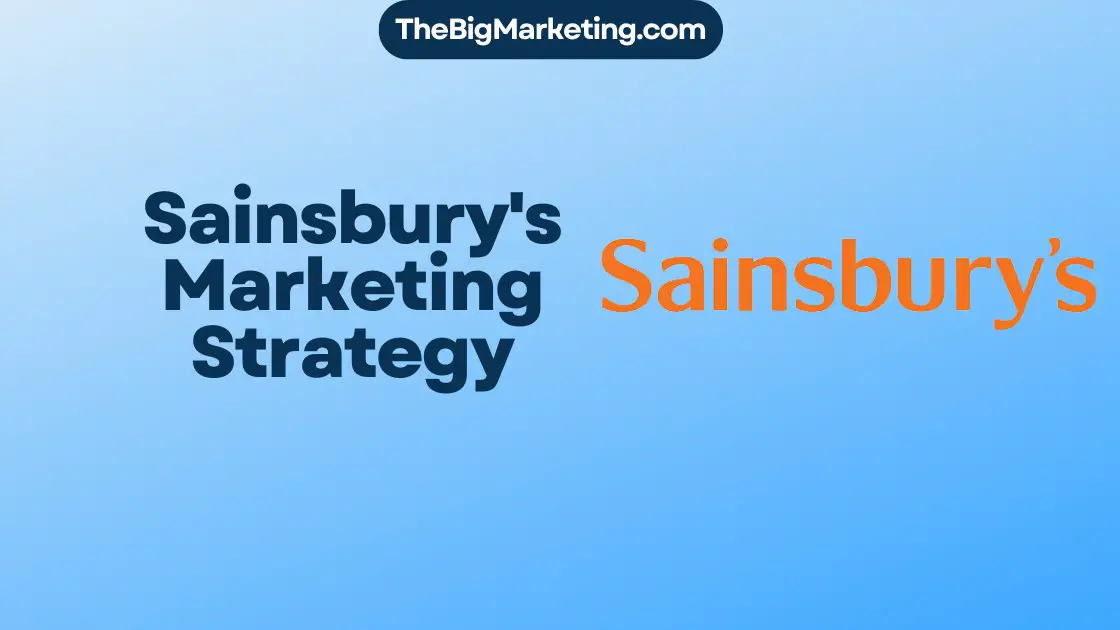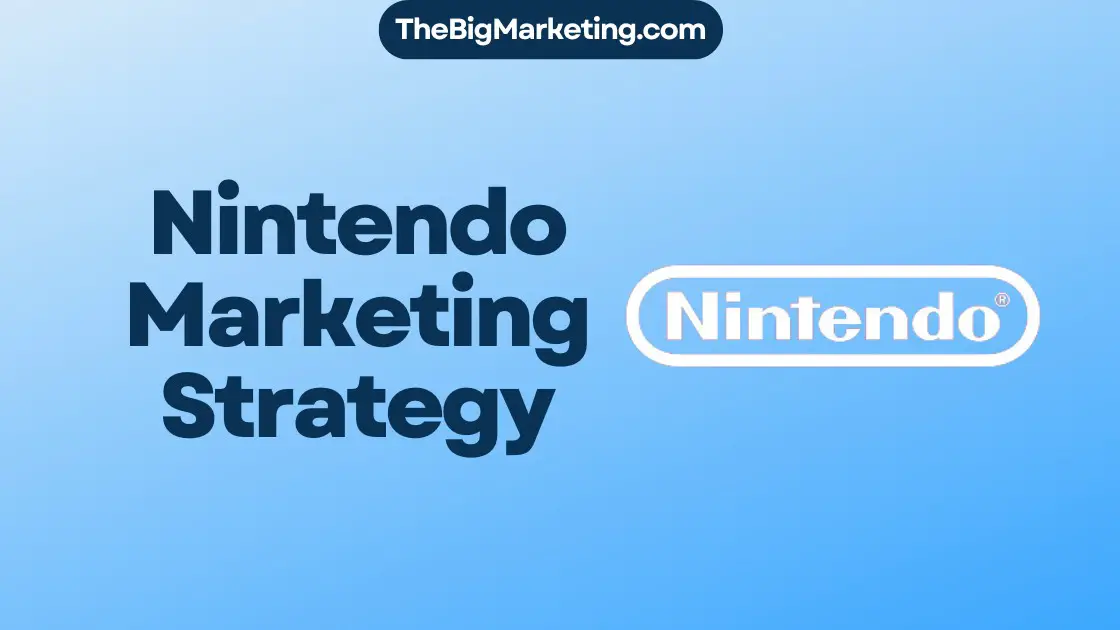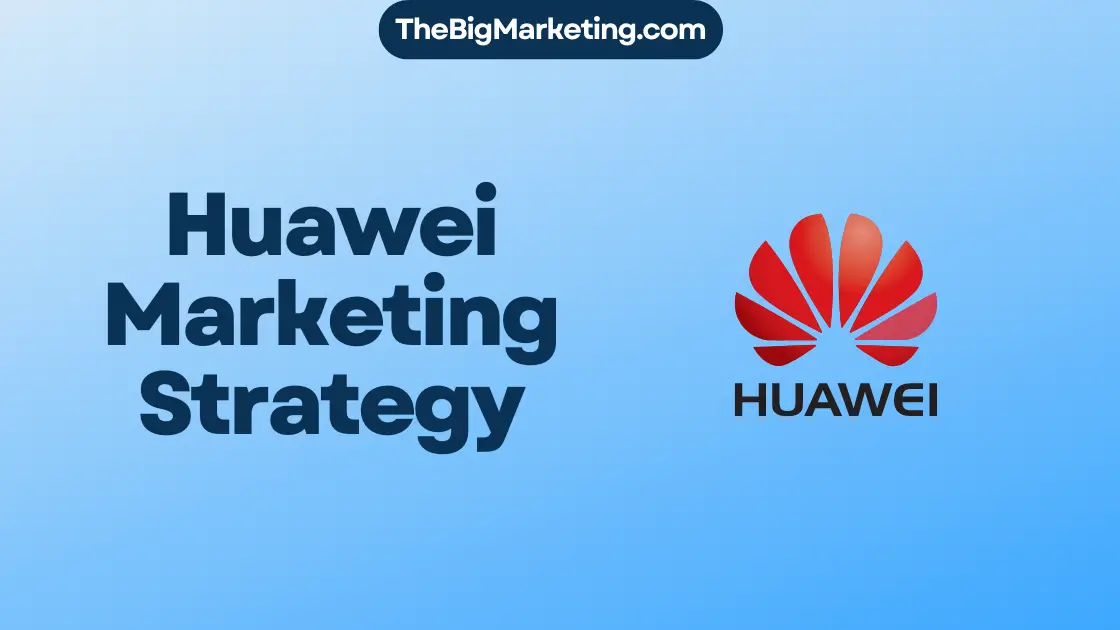Channel marketing is a practice that involves having other parties (either businesses or individuals) sell your product or service. It is different from just promoting your product through advertising and marketing channels. The key benefit of channel marketing is that your products can reach audiences you would otherwise not have access to. Channel marketing partners can include resellers, affiliates, and consultants.
Channel marketing allows businesses to expand their reach, increase brand recognition, and tap into new customer segments. By working with channel partners, businesses can leverage their resources, expertise, and networks to reach a wider audience.
In this article, we will explore the concept of channel marketing in more detail, including its definition, examples, importance, best practices, and tactics. Whether you are new to channel marketing or looking to improve your existing strategies, this comprehensive guide has you covered.
Key Takeaways:
- Channel marketing involves having other parties sell your product or service on your behalf.
- It allows businesses to reach audiences they would not have access to otherwise.
- Channel marketing partners can include resellers, affiliates, and consultants.
- Benefits of channel marketing include cost-effective marketing, increased brand recognition, and greater marketing reach.
- Challenges in channel marketing include limited access to analytics and lack of control over partner marketing activities.
Understanding Channel Marketing vs. Marketing Channels
Channel marketing and marketing channels are two related but distinct concepts in the realm of marketing. While they both play a crucial role in promoting businesses and products, it’s essential to understand the key differences between them.
Marketing Channels:
Marketing channels are the various platforms and portals used by businesses to promote their products or services. These channels can include digital platforms such as websites, social media, search engines, email marketing, and mobile applications, as well as offline channels like print media, television, radio, and direct mail. The purpose of marketing channels is to reach and connect with the target audience and convey the brand message effectively. Organizations develop marketing strategies and campaigns to leverage these channels and engage potential customers.
Channel Marketing:
On the other hand, channel marketing focuses on the practice of having other parties sell a company’s product or service. It involves building mutually beneficial relationships with these channel partners to reach new audiences and drive sales. Channel marketing partners can include resellers, affiliates, consultants, value-added resellers (VARs), distributors, or any third-party entity that has the means to sell a company’s offering. The goal of channel marketing is to expand the reach of a product or service by utilizing the existing channels and networks of these partners.
The Difference:
The main difference between channel marketing and marketing channels lies in their scope and approach. Marketing channels encompass the platforms and channels used to promote a business, whereas channel marketing refers specifically to the practice of engaging with partners to sell a product or service. Channel marketing is a subset of marketing channels and emphasizes the importance of building strategic partnerships to tap into new markets and customer segments.
While marketing channels focus on customer engagement and targeted messaging, channel marketing emphasizes building relationships with channel partners, enabling them to sell the products or services to their established networks. It involves collaboration, joint marketing efforts, and aligning strategies with channel partners to maximize sales opportunities.
| Marketing Channels | Channel Marketing |
|---|---|
| Encompasses various platforms and portals used for promoting products/services | Focuses on engaging with partners to sell products/services |
| Includes digital and offline channels | Includes resellers, affiliates, consultants, and other partners |
| Targets customers through messaging and engagement | Targets new audiences through partnerships |
| Provides channels for businesses to reach their target audience | Expands reach by leveraging the networks of channel partners |
Understanding these distinctions is crucial for businesses to develop comprehensive marketing strategies that incorporate both marketing channels and channel marketing approaches. By utilizing the right mix of marketing channels and building strong relationships with channel partners, businesses can effectively promote their products or services and reach a wider audience.
Types of Channel Marketing Partners
When utilizing channel marketing strategies, businesses can collaborate with various types of channel marketing partners to expand their reach and increase sales. Let’s explore three common types: resellers, affiliates, and consultants.
Resellers
Resellers are independent businesses that purchase products or services from the original manufacturer or vendor and then sell them at a higher price to end customers. These partners have the flexibility to create their own pricing structures and manage their own customer accounts. Resellers can often white-label your product or service, allowing them to rebrand it as their own. This collaboration enables them to control the selling price and increases their autonomy in the sales process.
Affiliates
Affiliates are partners who promote your products or services through referral marketing. They generate traffic and leads by embedding specialized tracking links on their websites or social media platforms. When visitors click on these links and make a purchase, affiliates earn a commission based on the number of successful referrals. This partnership model provides affiliates with an opportunity to monetize their audience and incentivizes them to actively promote your offerings.
Consultants
Consultants are experts in specific industries or fields who provide professional advice, guidance, and assistance to businesses and their customers. While consultants may not directly sell your products or services, they play a crucial role in promoting your business. They work closely with your customers, helping them effectively utilize your offerings and providing recommendations for improving their experience. Consultants can contribute to your business’s promotion by sharing insights, testimonials, and success stories.
By engaging with resellers, affiliates, and consultants as channel marketing partners, businesses can tap into their expertise, customer bases, and promotional capabilities. Leveraging the strengths of these partners can significantly expand brand visibility, increase sales opportunities, and drive business growth.
Benefits of Channel Marketing
Channel marketing offers several advantages for businesses, making it an effective strategy to consider. Let’s explore the key benefits of channel marketing:
1. Cost-Effective Marketing
By leveraging channel partners, businesses can significantly reduce their sales and marketing costs. Instead of maintaining an internal team, you can rely on your channel partners to promote and sell your products or services. This approach eliminates the need for extensive hiring, training, and overhead expenses, resulting in cost savings for your business.
2. Increased Brand Recognition
Working with channel partners can enhance your brand recognition and credibility. When reputable partners endorse your offerings, it builds trust among potential customers. Their existing customer base perceives your products/services as reliable and trustworthy, leading to increased brand awareness and improved perception in the market.
3. Greater Marketing Reach
One of the significant advantages of channel marketing is the ability to tap into the networks and audiences of your channel partners. This expanded reach allows you to access new customer segments that may have been inaccessible through traditional marketing channels. By leveraging the networks of your partners, you can potentially reach a wider audience and generate more leads.
| Benefits | Description |
|---|---|
| Cost-Effective Marketing | Channel marketing reduces costs by outsourcing sales and marketing functions to channel partners. |
| Increased Brand Recognition | Channel partners’ endorsement enhances brand credibility and visibility. |
| Greater Marketing Reach | Channel partners help expand marketing reach by accessing their networks and customer base. |
By leveraging channel marketing, businesses can access cost-effective marketing solutions, increase brand recognition, and reach a broader audience. These benefits make channel marketing a compelling strategy to consider for sustainable business growth.
Challenges in Channel Marketing
While channel marketing can be a valuable strategy for businesses, it comes with its fair share of challenges. Understanding and addressing these challenges is crucial to ensure the success of your channel marketing efforts.
Lack of Access to Analytics
One of the challenges in channel marketing is the limited access to analytics. Each channel partner may have their own platforms and systems, making it difficult to gather comprehensive data and insights. Without access to this data, it becomes challenging to accurately measure the effectiveness of your channel marketing strategies and make informed decisions for optimization.
Less Advanced Marketing Strategies
Another challenge in channel marketing is that some partners may have less advanced marketing strategies compared to your company. While you may have sophisticated marketing tactics and tools in place, your partners might not have the same level of expertise or resources. This could result in variations in the quality and effectiveness of marketing campaigns, which may impact the overall success of your channel marketing efforts.
Lack of Control
The lack of control is a common challenge faced in channel marketing. Each channel partner operates independently and has the freedom to create their own marketing materials. While this flexibility allows partners to tailor their messaging to their specific audience, it can also pose challenges in terms of maintaining consistency with your brand identity. Ensuring that partners align with your brand guidelines and messaging can be a cumbersome task, requiring continuous communication and monitoring.
Overcoming these challenges requires proactive effort from your end. Building strong relationships with your channel partners, providing them with training and support, and implementing clear communication channels can help mitigate these challenges and optimize your channel marketing strategies.
By addressing these challenges head-on, you can make the most of your channel marketing partnerships and ensure that your brand message resonates consistently with your target audience.
| Challenges in Channel Marketing | Solutions |
|---|---|
| Lack of Access to Analytics | Implement a centralized analytics platform that integrates data from different channel partners. Establish clear reporting requirements with partners and regularly review and analyze the gathered data to identify insights and trends. |
| Less Advanced Marketing Strategies | Offer marketing training and resources to your channel partners to improve their marketing capabilities. Provide them with access to your marketing tools and collaborate closely to align strategies and tactics. |
| Lack of Control | Develop comprehensive brand guidelines and provide clear instructions for partners to follow. Regularly review partner marketing materials to ensure consistency with your brand identity. Establish open lines of communication to address any concerns or deviations promptly. |
Developing a Channel Marketing Partnership
Developing a channel marketing partnership is a strategic approach that allows businesses to expand their reach and tap into new customer segments. To establish a successful channel marketing partnership, several key steps need to be followed: identifying potential partners, making the pitch, and signing the agreement.
Identifying Potential Partners
The first step in developing a channel marketing partnership is to identify potential partners who align with your target audience and business goals. This involves conducting thorough research and analysis of their products, markets, and technical capabilities.
Consider factors such as their customer base, industry expertise, and market reach to ensure compatibility and synergy between your businesses. Identifying complementary partners who offer products or services that enhance your offerings can significantly benefit both parties.
Making the Pitch
Once you have identified potential partners, it’s time to make the pitch. Craft a compelling proposal that highlights the mutual benefits of a channel partnership and how it aligns with their business objectives. Emphasize how partnering with you can help them expand their market reach and increase revenue.
During the pitch, provide evidence of your market position, success stories, and the resources you can bring to the partnership. Clearly communicate the value proposition and unique selling points that differentiate your products or services.
Signing the Agreement
After successfully convincing potential partners of the value of a channel marketing partnership, it’s essential to sign a detailed agreement that outlines the responsibilities and expectations of both parties. This agreement should cover various aspects, including marketing strategies, sales targets, pricing, and payment terms.
The agreement should also address potential areas of conflict and establish dispute resolution mechanisms. Setting clear expectations and aligning on key performance indicators will help maintain a productive and mutually beneficial partnership.
With a well-defined and mutually agreed-upon agreement in place, you can confidently move forward with your channel marketing partnership, ready to capitalize on the opportunities it presents.
| Key Steps for Developing a Channel Marketing Partnership |
|---|
| 1. Identify potential partners who align with your target audience and business goals. |
| 2. Make a compelling pitch emphasizing the mutual benefits of a channel partnership. |
| 3. Sign a detailed agreement outlining responsibilities and expectations. |
Choosing the Right Channel Marketing Partners
When selecting channel marketing partners, it is essential to evaluate both the benefits for them and for your business. It’s crucial to work with partners who share similar goals aligned with your own and actively contribute to your channel marketing plan. Beyond compatibility, there are several partner selection criteria and considerations to keep in mind for a successful collaboration.
Partner Selection Criteria:
- Employee Count: Assess the size and expertise of potential partners’ teams to determine their capacity for effective collaboration.
- Annual Revenue: Consider partners with substantial revenue as it indicates their business stability and the potential for higher sales.
- Product Offerings: Evaluate the alignment of their products or services with your target market and determine if they complement your offerings.
- Niche Target Market: Look for partners who have an existing customer base within your desired market segment to maximize the reach of your channel marketing efforts.
- Marketing Spend: Analyze partners’ marketing budgets to ensure they have the resources to contribute effectively to joint marketing campaigns.
- Ability to Adapt: Assess their flexibility and strategic capabilities to adapt to changes in the dynamic marketing landscape.
Considerations for Channel Partners:
During the selection process, it is vital to consider the potential partners’ motivations and incentives for collaboration. Partners should demonstrate enthusiasm and a willingness to actively contribute to the success of the channel marketing program. Additionally, evaluate their track record and reputation within your industry to ensure a strong partnership with a trusted and reliable ally.
Choosing the right channel marketing partners requires careful evaluation, analysis, and consideration of various criteria. By selecting partners who align with your goals, possess the necessary resources, and exhibit a track record of excellence, you can build a mutually beneficial partnership that enhances your channel marketing strategy.
The Role of Channel Marketing
Channel marketing plays a crucial role in reaching your target audience through partner programs, which involve selling your products or services through third-party companies or individuals. As part of a comprehensive marketing strategy, channel marketing programs work alongside direct selling and cross-channel marketing initiatives to maximize your reach and tap into a wider customer base.
By leveraging channel partners, businesses can increase their brand visibility and generate new revenue streams. These partners act as an extension of your sales and marketing efforts, utilizing their networks, expertise, and established customer relationships to promote and distribute your offerings.
Partner programs in channel marketing allow you to extend your market reach and connect with potential customers who might not have been exposed to your products otherwise. By collaborating with trusted partners in relevant industries or market segments, you can benefit from their established reputation and credibility.
When implemented effectively, a channel marketing strategy can yield significant results in terms of customer acquisition and conversion. These partnerships enable you to access new target markets, tapping into the existing customer base of your channel partners.
Reaching a Target Audience
One of the primary goals of channel marketing is to effectively reach your target audience. By partnering with organizations or individuals who have a strong presence in your target market, you can overcome geographical or demographic barriers that may have otherwise limited your reach.
Channel marketing allows you to leverage the resources, expertise, and networks of your partners to connect with the right audience. Their understanding of the market and customer preferences can help you tailor your messaging and promotional efforts for maximum impact.
Partner programs in channel marketing provide access to new customer segments and demographics that align with your business objectives. By working with partners who have a deep understanding of their respective markets, you can refine your marketing strategies and ensure your message resonates with the right audience.
Partner Programs
The success of channel marketing relies on strategic partnerships with channel partners who are aligned with your business goals and target audience. These partners can include resellers, affiliates, influencers, and consultants, among others.
Resellers are businesses that sell your products or services directly to end customers. They play a crucial role in expanding your market reach and providing localized support to customers. Affiliates, on the other hand, promote your offerings through their own channels, such as websites or social media platforms, earning a commission for each successful referral.
Influencers and consultants are valuable partners in channel marketing as they have a strong influence and credibility within specific industries or target markets. Their endorsement of your products or services can significantly increase brand awareness and drive customer engagement.
Partner Programs in Action
To illustrate the role of partner programs in channel marketing, let’s consider an example in the technology industry.
Company XYZ, a software solutions provider, partners with various resellers and consultants to expand its market presence. Through these partner programs, XYZ gains access to new markets and industries, reaching customers who are in need of their software solutions.
As part of their channel marketing strategy, XYZ provides comprehensive training and marketing support to their partners, ensuring consistency in messaging and branding. The partners, equipped with the necessary knowledge and resources, promote XYZ’s solutions to their networks and existing customer base.
This partnership-driven approach enables XYZ to effectively reach their target audience, leading to increased brand visibility, customer acquisition, and revenue growth.
| Benefits of Channel Marketing | Role in Reaching Target Audience | Partner Programs in Action |
|---|---|---|
| Increased brand visibility | Overcoming geographical barriers | Strategic partnerships with resellers, affiliates, influencers, and consultants |
| Access to new customer segments | Tapping into specific demographics | Comprehensive training and marketing support |
| Revenue growth through partner-driven sales | Refining marketing strategies with partner insights | Promoting products through partner networks |
The Importance of a Marketing Channel Strategy
A marketing channel strategy plays a crucial role in the success of your business by ensuring that you effectively reach your target audience through different platforms. It enables you to diversify your marketing efforts and increase brand recognition, ultimately driving growth and revenue.
One of the key benefits of a marketing channel strategy is the ability to reach your target audience in various ways. By utilizing multiple channels, such as social media, email marketing, website content, and offline advertising, you can connect with your audience wherever they are. This helps you capture their attention and guide them through the customer journey, ultimately converting them into loyal customers.
Furthermore, a marketing channel strategy allows you to create a consistent and integrated customer experience. By aligning multiple channels, you can ensure that your brand message, tone, and values remain consistent across all touchpoints. This level of cohesion builds trust and credibility with your audience, strengthening your brand image and increasing customer loyalty.
When developing your marketing channel strategy, you may consider a multichannel approach or an omnichannel strategy. A multichannel strategy focuses on utilizing multiple channels independently to target different segments of your audience. This approach allows you to maximize your reach and engagement across various platforms. On the other hand, an omnichannel strategy connects these channels to provide a seamless and cohesive experience for your audience. It enables customers to transition effortlessly between channels while maintaining their journey and interactions with your brand.
To determine the best approach for your business, consider your target audience, their preferences, and the nature of your products or services. The goal is to choose a strategy that aligns with your business objectives and provides the most effective means of reaching and engaging with your target audience.
In conclusion, having a well-defined marketing channel strategy is essential for reaching your target audience, increasing brand recognition, and driving business growth. By diversifying your marketing efforts across multiple channels and creating a consistent customer experience, you can effectively connect with your audience and achieve your marketing goals.
The Four Types of Marketing Channels
When it comes to marketing, businesses have a variety of channels at their disposal to connect with their target audience. Understanding the different types of marketing channels is crucial in developing an effective marketing strategy. In this section, we will explore the four main types of marketing channels: paid marketing channels, partnership marketing, and free marketing channels.
Paid Marketing Channels
Paid marketing channels involve investing money to promote your website or content. These channels can provide immediate visibility and reach to your target audience. One popular example of a paid marketing channel is pay-per-click (PPC) advertising, where businesses bid on keywords to display their ads on search engine results pages. Other paid marketing channels include social media advertising, influencer marketing, and sponsored content.
Partnership Marketing
Partnership marketing is all about collaborating with other businesses or entities to promote each other’s products or services. By partnering with complementary brands, you can tap into their customer base and leverage their influence. This type of marketing channel allows for cross-promotion and can significantly expand your reach. Examples of partnership marketing include co-branding campaigns, joint events, and affiliate marketing programs.
Free Marketing Channels
Free marketing channels refer to platforms where businesses can promote their offerings without incurring direct advertising costs. These channels rely on organic reach and can be highly cost-effective for businesses with limited marketing budgets. One popular free marketing channel is organic search, where businesses optimize their websites to rank higher in search engine results. Other examples include content marketing, email marketing, social media management, and public relations.
By utilizing a combination of paid marketing channels, partnership marketing, and free marketing channels, businesses can create a diverse and well-rounded marketing strategy. Each type of marketing channel offers unique opportunities and advantages, allowing businesses to reach their target audience effectively. The key is to understand your business goals and target audience to determine which marketing channels to prioritize.
| Marketing Channel Type | Description |
|---|---|
| Paid Marketing Channels | Channels that require financial investment for promotional activities, such as PPC advertising, social media advertising, and influencer marketing. |
| Partnership Marketing | Collaborative marketing efforts with other businesses to promote each other’s products or services, including co-branding campaigns and affiliate marketing. |
| Free Marketing Channels | Channels that allow businesses to promote their offerings without direct advertising costs, such as organic search, content marketing, and social media management. |
Conclusion
Channel marketing is a valuable strategy for businesses to expand their reach, increase brand recognition, and tap into new customer segments. By working with channel partners, businesses can leverage their resources, expertise, and networks to reach a wider audience. Channel marketing allows businesses to access new markets and customer segments that they may not have been able to reach on their own.
However, channel marketing also comes with its challenges. One of the main challenges is the need for consistent messaging. Businesses must ensure that their partners understand and effectively communicate the brand’s message to maintain a cohesive brand identity. Additionally, limited control over partner marketing activities can pose a challenge in maintaining brand consistency and controlling the overall marketing strategy.
To succeed in channel marketing, businesses must carefully select their partners. It is crucial to choose partners that align with the brand’s goals, values, and target audience. Establishing clear agreements and expectations upfront is also essential to ensure both parties are on the same page. Monitoring and optimizing channel marketing strategies continuously is important to identify areas for improvement and maximize the partnership’s effectiveness.



